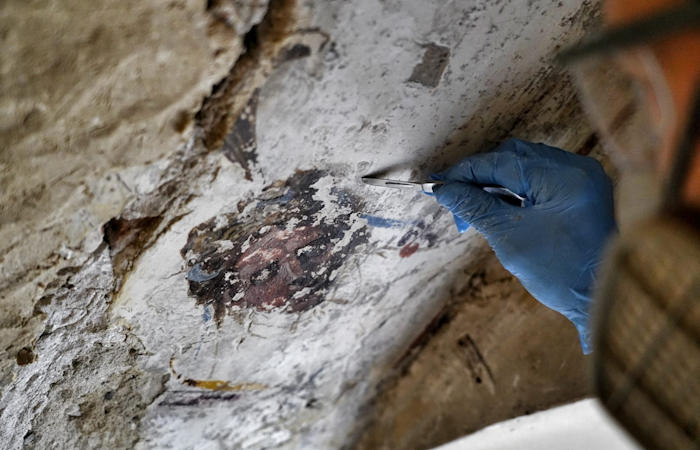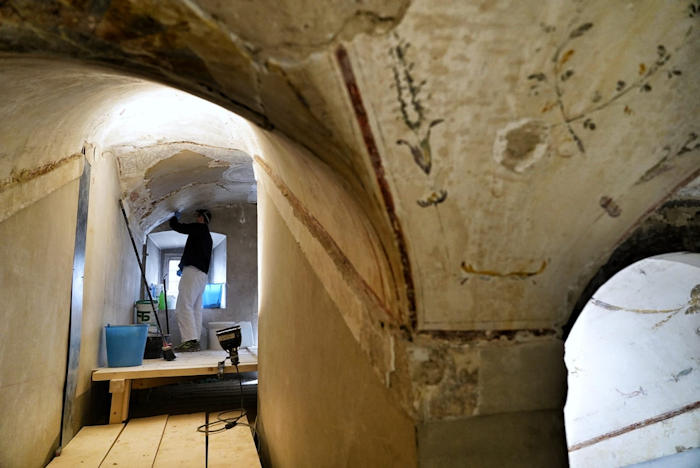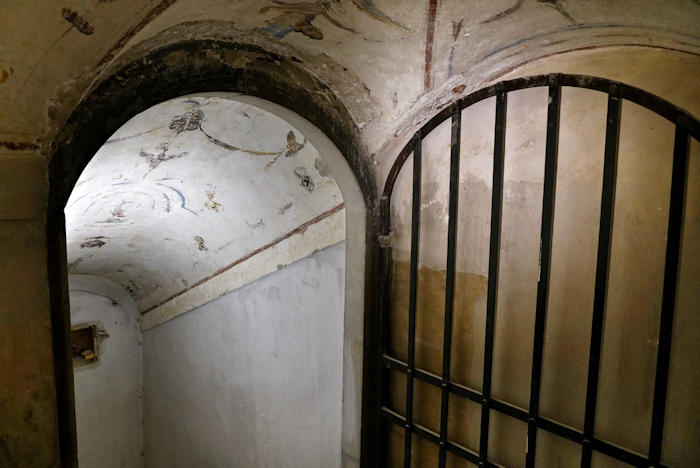Jan Bartek - AncientPages.com - There are places where you can literally "feel" you're moving back in time. One such place is Palazzo Vecchio in Florence, Italy. Built in 1299, the palace became an icon of Florence. The building acquired its current name when the Medici duke's residence was moved across the Arno River to the Palazzo Pitti.
While restoring part of the building, strange paintings were found. Credit: Città di Firenze
"Palazzo Vecchio's current appearance is due largely to great works of renovation and interior decoration that were made around 1540, when Duke Cosimo I de’ Medici and his wife Eleonora of Toledo decided to turn the palace into their residence. The court of the Medici was transferred to Palazzo Vecchio (from Palazzo Medici-Riccardi), which was transformed into a fascinating labyrinth of institutional chambers, apartments, terraces and courtyards. All the rooms (the so-called Quartieri Monumentali) are magnificently decorated by artists such as Michelangelo, Giorgio Vasari and Donatello." 1
Palazzo Vecchio is home to many magnificent Renaissance paintings, and the enigmatic building still has secrets to reveal.
The unusual paintings were behind a secret staircase. Credit: Città di Firenze
During the works on an escape route from the terrace of Saturn towards via dei Leoni, workers made a curious discovery. Technicians of the Fine Arts Service of the Municipality of Florence have been engaged in the recovery of a 'secret' staircase, still unused, which leads from the Terrace of Saturn to the ground floor, on via dei Leoni.
While 'washing out' the vaults and walls and removing all the layers covering the ancient plaster, the restorers brought to light the surfaces decorated with 'grotesques' dating back approximately to the years shortly after the half of the 16th century. These "grotesque" paintings are attributable to the artist Marco Marchetti from Faenza.
An escape route was found. Credit: Città di Firenze
“Palazzo Vecchio is a treasure chest of beauties that are hidden around every corner, and this umpteenth discovery proves it: these are grotesque decorations dating back to around the middle of the 16th century which are returning to their original splendor thanks to painstaking work," Mayor Dario Nardella said in a press statement.
The paintings were made by Marco Marchetti, an Italian painter of the late-Renaissance. Credit: Città di Firenze
Through the Fine Arts office, the administration is fully committed to maintaining and enhancing this great artistic and architectural heritage”
"Beautifully decorated surfaces are coming to light again. This is the result of the commitment of technicians and restorers, a great team effort to protect and enhance a part of the Palazzo that has yet to be rediscovered," commented the Deputy Mayor and Councilor for culture Alessia Bettini. 2
There are still many in Palazzo Vecchio. Credit: Città di Firenze
Credit: Città di Firenze
Sources and documents show that the 'secret stairway' was built to provide a route that would allow Eleonora di Toledo and Cosimo de' Medici to have an escape route and exodus in case of need, avoiding the passage on the stairs monumental, as well as for connecting functions between the various parts of the Palace.
Upon completion, the staircase will be integrated into the escape system from the building, recovering its historical character to implement the security of the offices,
Written by Jan Bartek - AncientPages.com Staff Writer
Expand for references







